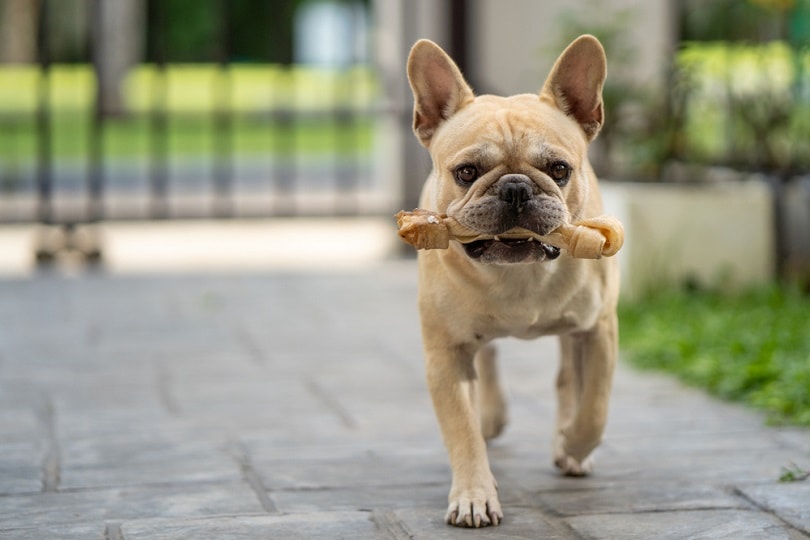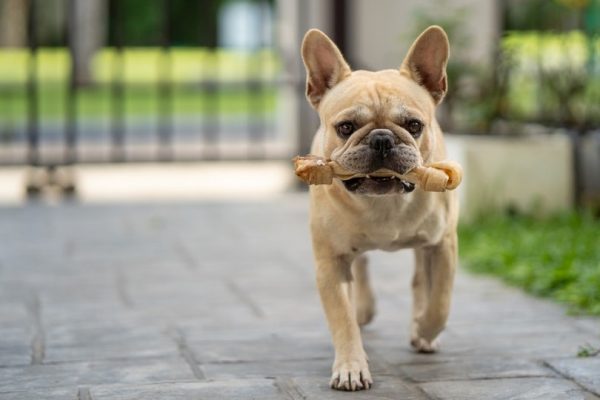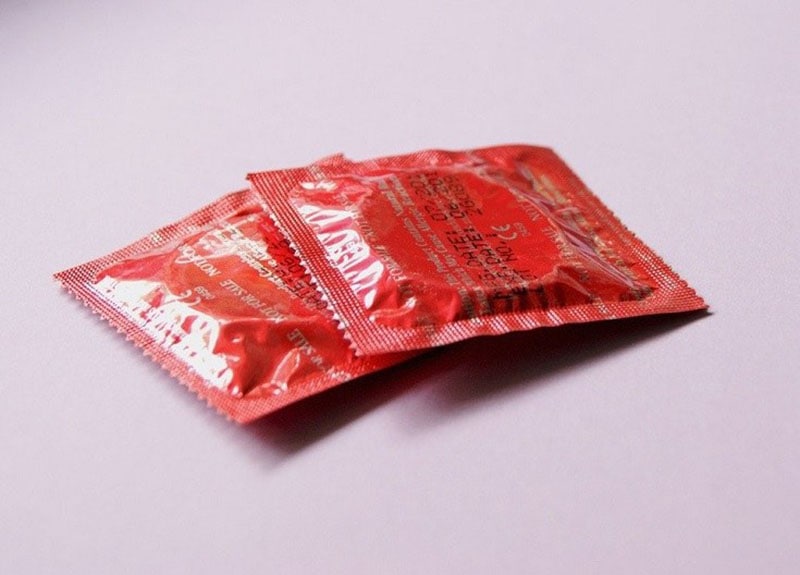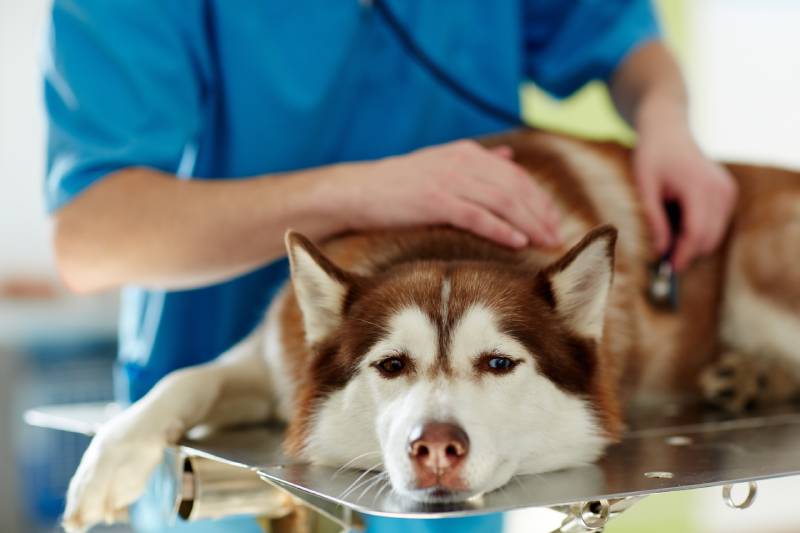Click to Skip Ahead
Rawhide chews have gained popularity among dog owners, providing entertainment to their dogs while simultaneously maintaining good dental hygiene. However, opinions are mixed, and it appears the jury is still out. Rawhide advocates will say they are the best option out there, safer than bones and more natural than dental chews. Rawhide opponents, on the other hand, will say they are dangerous; full of chemicals and posing several health risks.
The most commonly encountered problem is ingestion, or swallowing, of a large piece of rawhide. Indeed, if the piece of rawhide is large enough in comparison to the size of your dog, this can cause a blockage in the digestive tract or an obstruction of the windpipe, which should be taken very seriously.

What Should I Do If My Dog Swallowed Rawhide?
If you think or know that your dog has swallowed rawhide, do not hesitate to contact your veterinarian. They will be able to guide you as to the appropriate next step which will depend on when it was eaten, the size of the rawhide and your dog, and any signs your dog is showing.
Attempting to make your dog vomit at home is not safe, and not recommended. If the rawhide is stuck in the throat or further down the digestive tract, more intensive and invasive measures may be required to remove it.
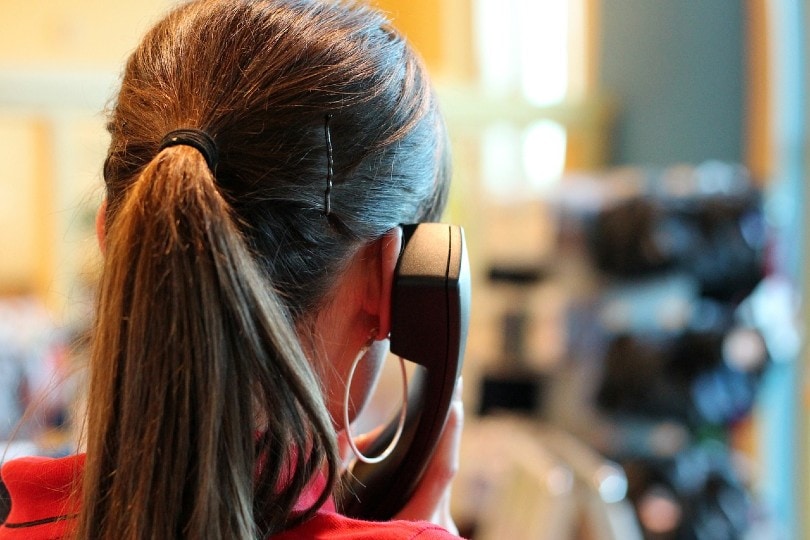
When Should I Be Worried?
There are two instances in which you should be concerned. The first is if you have witnessed your dog eat a very large piece of rawhide, or if you have noticed a large chunk of rawhide missing. The risk this poses depends somewhat on the size of your dog. Of course, a small dog that has eaten a moderately large piece of rawhide (for example, 3 inches) is likely to experience problems; a medium or large dog that has eaten a very large piece (> 5 inches) is also concerning. Early consultation with a veterinarian may prevent a blockage of the stomach or intestines.
The second instance in which you should be concerned is if your dog is exhibiting any concerning signs, such as vomiting, and has recently been offered a rawhide chew. Any signs of choking or difficulty breathing requires immediate emergency veterinary intervention.
What Problems Can Rawhide Cause?
- Choking due to obstruction of the throat
- Blockage in the esophagus
- Blockage in the stomach or small intestines
- Gastroenteritis (“gut upset”) if the rawhide is contaminated with harmful bacteria
What Are the Signs of Rawhide Ingestion?
Larger pieces of rawhide can get stuck in a dog’s throat when they attempt to swallow it, and this can have serious consequences. When lodged in the back of the mouth or upper part of the esophagus it puts pressure on and can obstruct the windpipe leading to breathing difficulties. Dogs may also gag, retch, cough, drool and paw at their mouths. If you are concerned your dog has something stuck in their throat, or they appear to be having difficulties breathing, they must be seen by a veterinarian as an emergency.
If the rawhide has passed down the esophagus but is unable to pass out of the stomach or intestines, then it is known as a gastrointestinal foreign body and can cause blockages. The most common sign a dog will show is vomiting. Affected dogs may also be lethargic and reluctant to eat. Many will have abdominal pain and adopt a hunched stance. If the rawhide has not caused a blockage but has caused a gut upset due to bacteria, vomiting and diarrhea are common. Dehydration can occur as a result of this.
Why Do Dogs Swallow Rawhide?
As we mentioned, dogs love chewing things—especially things that smell or taste like food. Rawhide chews tick both of these boxes. Many dogs will chew rawhide for hours without making a major dent in the size or shape of the chew. However, rawhide becomes softer and more slimy the longer it is chewed for, and some dogs are over-enthusiastic and don’t know the strength of their own jaws. These dogs can break off and eat large chunks of rawhide, either accidentally or purposefully.
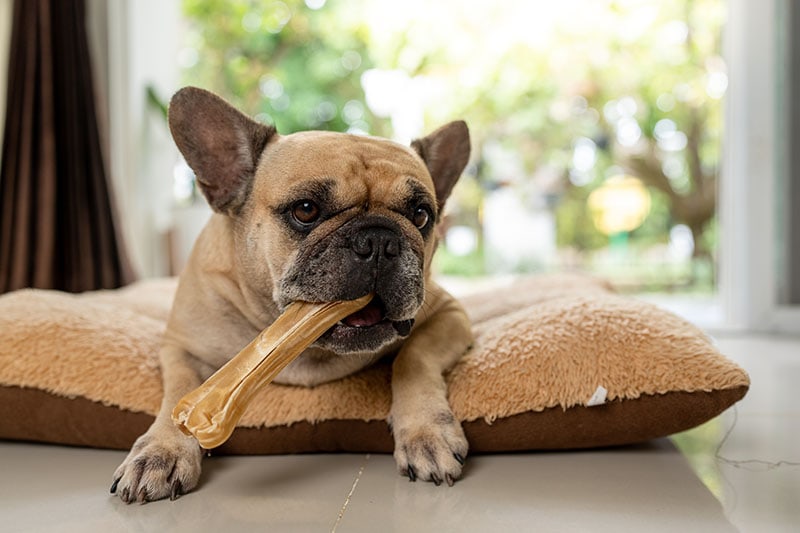

How Can I Prevent My Dog Swallowing Rawhide?
Here, the key message is to exercise caution and good judgment. If you have a large breed of dog, such as a Labrador or Rottweiler, only offer large rawhide treats. If you’ve noticed that your dog is able to break or eat the rawhide, remove it and do not offer them in the future.
We also recommend supervising your dog while they have the rawhide, and not leaving them home alone with a rawhide chew for several hours. If you have a small dog or a puppy, most medium-sized rawhide chews will be acceptable.
What Is Rawhide?
Rawhide treats are made from the inner layer of a hide, generally either from a horse or cow. They are compressed and molded into a number of different shapes such as bones and strips. Rawhide contains animal fat and protein, though it is difficult to digest.
Dogs enjoy rawhide chews because they have an appealing smell and taste; they also offer dogs a chance to exercise one of their main canine instincts: chewing.
Conclusion
Rawhide chews can be a great way of keeping your dog occupied, releasing endorphins, and helping to maintain good dental hygiene by removing plaque. However, as a dog owner, it’s important to also know their risks. If your dog is strong enough and chews vigorously enough, they can break off and swallow large chunks of rawhide.
Since rawhide is not easily broken down by the digestive tract, it can sit in the stomach or intestines and cause a blockage. If you are concerned that your dog has eaten some rawhide, contact your veterinarian for either a phone or in-clinic consultation.
In general, we recommend using rawhides sparingly and cautiously, and avoiding them altogether if they have caused issues previously.
Featured Image Credit: Tienuskin, Shutterstock

